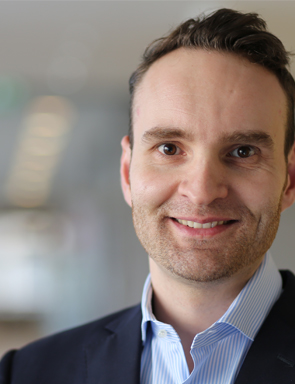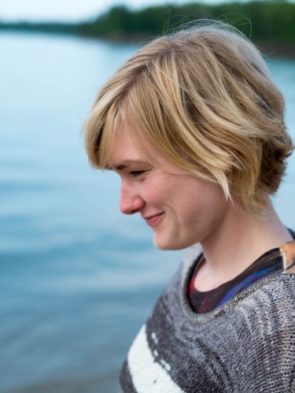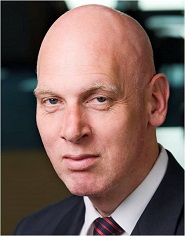PROGIC 2019: Ninth Workshop on Combining Probability and Logic
July 8-10, 2019 at Frankfurt School Campus, Room 3.01
The Ninth Workshop on Combining Probability and Logic (PROGIC 2019) continues the progic workshop series. The focus of this iteration of PROGIC is decision making, with an emphasis on advances in descriptive, normative, and prescriptive models of decision making.
Programme
| Time | Monday, 8th July 2019 in Room 3.01 |
|---|---|
| 09:30 - 10:45 |
Peter Wakker: Savage’s Logical Foundations of Probability Reinforced against Attacks from Imprecise Probabilities and Ambiguity-Decision Theory |
| 10:45 - 11:00 | COFFEE BREAK |
| 11:00 - 11:45 |
Jean Baccelli, Georg Schollmeyer and Christoph Jansen: Risk Aversion over General Domains |
| 11:45 - 12:30 |
Markus Dertwinkel-Kalt and Mats Köster: Optimal Stopping in a Dynamic Salience Model |
| 12:30 - 14:00 | LUNCH |
| 14:00 - 14:45 |
Glenn Shafer: The Language of Betting as a Strategy for Statistical and Scientific Communication |
| 14:45 - 15:30 |
Conor Mayo-Wilson: QUOL (Qualitative, Objective Likelihoodism) |
| 15:30 - 15:45 | COFFEE BREAK |
| 15:45 - 16:30 |
Ilke Aydogan, Aurelien Baillon, Emmanuel Kemel and Chen Li: Signal perception and belief updating |
| 16:30 - 17:15 |
Eric Raidl and Hans Rott: Revising context-dependent and vague beliefs: A model based on ranking functions |
| Time | Tuesday, 9th July 2019, Room 3.01 |
|---|---|
| 09:30 - 10:45 |
Michael Waldmann: Causal reasoning: How rational are we? |
| 10:45 - 11:00 | COFFEE BREAK |
| 11:00 - 11:45 |
Harry Crane: A Formal Model for Intuitive Probabilistic Reasoning |
| 11:45 - 12:30 |
Gert de Cooman and Jasper De Bock: From sets of desirable option sets to choice models on horse lotteries |
| 12:30 - 14:00 | LUNCH |
| 14:00 - 15:15 |
Johanna Thoma: Against Preference-Based Instrumental Rationality |
| 15:15 - 15:30 | COFFEE BREAK |
| 15:30 - 16:15 |
Elizabeth Jackson: On the Independence of Belief and Credence |
| 16:15 - 17:00 |
Joe Roussos: Modelling in Formal Epistemology |
| 18:00 |
Dinner Omonia Restaurant, Eckenheimer Landstraße 126, 60318 Frankfurt |
| Time | Wednesday, 10th July 2019, Room 3.01 |
|---|---|
| 09:30 - 10:45 |
Sebastian Ebert: Some results on “Weighted discounting” |
| 10:45 - 11:00 | COFFEE BREAK |
| 11:00 - 11:45 |
Gregory Wheeler and Fabio Cozman: On the Imprecision of Full Conditional Probabilities |
| 11:45 - 12:30 |
Seamus Bradley: Aggregating belief models: a unifying theory of aggregation |
| 12:30 - 14:00 | LUNCH |
| 14:00 - 14:45 |
Pavel Janda: Making Credences about the Future Accurate |
| 14:45 - 15:30 |
Mikayla Kelley: On Accuracy and Coherence with Infinite Opinion Sets |
| 15:30 - 15:45 | COFFEE BREAK |
| 15:45 - 16:30 |
Juergen Landes, Soroush Rafiee Rad and Jon Williamson: The Entropy-Limit Conjecture for Π1-Constraints on Predicate Languages |
Steering Committee
Niki Pfeifer: Theoretical Philosophy, University of Regensburg
Jan-Willem Romeijn: Department of Philosophy, University of Groningen
Marta Sznajder: Munich Center for Mathematical Philosophy, LMU Munich
Gregory Wheeler: Centre for Human and Machine Intelligence, Frankfurt School of Finance & Management
Jon Williamson: Department of Philosophy & Centre for Reasoning, University of Kent
Invited Speakers

Sebastian Ebert
Sebastian Ebert is a Professor of Microeconomics at Frankfurt School. Prior to that he was an Associate Professor of Finance at Tilburg University, with which he continues to hold an affiliation. His research focuses on the psychology behind financial and other risky decisions, thereby contributing to the growing fields of behavioral economics, finance, and insurance. Methodologically, Ebert relies on analytical modeling as well as on experiments. Much of his work is interdisciplinary and merges insights from economics, statistics, mathematics, and psychology. He has won several prizes for his research and published in leading economics and management journals, including the American Economic Review and Management Science.
Johanna Thoma
Johanna Thoma is Assistant Professor of Philosophy at the Department of Philosophy, Logic and Scientific Method at the London School of Economics. She works on practical rationality, decision theory, economic methodology, and ethics and public policy. She received her PhD from the University of Toronto in 2017, where she won the Governor General’s Gold Medal for her dissertation. Professor Thoma’s work explores behavioral interpretations of preference that warrant treating expected utility theory as a normative account of instrumental rationality, which she has applied recently to bargaining and social contract theory, temptation and self-control, among other topics. Her work has appeared in Erkenntnis, Ethics, Philosophical Studies, and Philosophy of Science.


Peter P. Wakker
Peter Wakker is professor of decisions under uncertainty at the Econometric Institute of Erasmus School of Economics (ESE). He works in behavioral economics and on risk and ambiguity.
Wakker has published in leading journals in economics, business, medicine, psychology, statistics, and mathematics. He was nominated the best-publishing Dutch economist in the years 1994, 1998, 2003, and 2007, and was ranked 90th in the world in the ISI's most cited scientists in economics and business in 2003. He received a Medical Decision Making Career Achievement Award (2007), the Frank P. Ramsey Medal (2013; highest award of INFORMS Decision Analysis Society), and an Honorary doctorate in economics (University of St. Gallen 2016).
Michael R. Waldmann
Michael Waldmann is Professor of Psychology at the University of Göttingen. He received the early career research award from the German Society for Psychology, is Fellow of the Association of Psychological Science, and currently is Chair of the Scientific Advisory Board of the Max Planck Institute for Human Development in Berlin. His research focuses on higher-level cognitive processes including learning, reasoning, categorization, and judgment and decision making. Professor Waldmann has made fundamental contributions to our understanding of the cognitive processes underlying the acquisition of causal and moral knowledge, including the neural basis of causal and moral reasoning.

